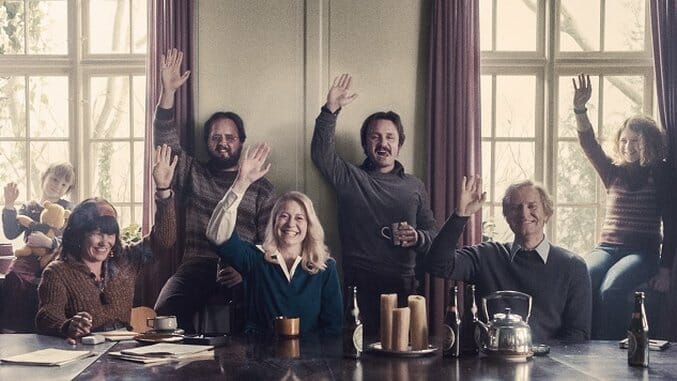The Commune

When your life’s running on empty, you find substance to fill up the tank. Maybe you take up a hobby, or volunteer your time to worthy causes, or get involved with your, or, God forbid, attend church. Or maybe you decide to turn your spouse’s ancestral home into a commune and create an open living situation with a gaggle of your friends, blended with a smattering of perfect strangers. That ought to top you off, unless you’re a character in a Thomas Vinterberg movie, because positive outcomes are to his body of work as oil is to water.
Let’s be fair: Vinterberg’s last film, 2015’s Far from the Madding Crowd, ends on the highest, most romantic of notes, with two very attractive, very compelling characters kissing passionately and walking off into the sunset hand in hand. (Literally.) Still, that movie filtered Vinterberg through the work of Thomas Hardy, whose original text is a catch basin for all of the human and social critique that Vinterberg so often includes in his own work. (See: The Hunt, for instance.) By comparison, The Commune, Vinterberg’s latest, sees him getting back to basics, staging moral drama which pits the wants of individuals against the rules of the collective. It’s a story of adults, alternately desperate and selfish, and how their reckless needs end up creating backlash that cuts through their children like a snapped tension cable.
The Commune begins simply, as husband and wife Erik (Ulrich Thomsen) and Anna (Trine Dyrholm) tour the manse in which Erik grew up as a boy. His dad has just passed, and the house is now his. He’s also a bit of a tightwad, and as an architecture professor, he is worried about affording upkeep on the place. Anna, by contrast, is an anchor on a Danish news program, and where Erik sees expenditures, she sees opportunity to freshen up their lives. Thus, they decide to capitalize on their era’s slack cultural inhibitions and give communal living a go, which works nearly as well as anyone might anticipate it to: All’s well to start, as life in the commune comes to resemble a continuous parade of celebration and revelry, which, all told, seems like a pretty sweet deal for how steep the rent is.
But think of the commune itself as a glass veneer, and you’ll recognize the cracks running along its edges right away. The gang’s merrymaking is haunted by jealousy’s onset: Erik tries, at dinnertime, to arrest Anna’s attentions from their roomies, but fails each time, thwarted by either the noise or by her own distraction. It’s Vinterberg’s idea of a gag that a family so afraid at first of losing one another in a house so great should end up drifting apart while enduring a proximity they’ve not previously known. Erik and Anna grow physically closer and spiritually distant as the commune rolls on, until Erik’s dissatisfaction pushes him right into the arms of one of his students, Emma (Helene Reingaard Neumann), young, brilliant and devastatingly gorgeous, a mirror to reflect Anna’s fading youth, to remind her of both what she has already lost and what she is currently losing.